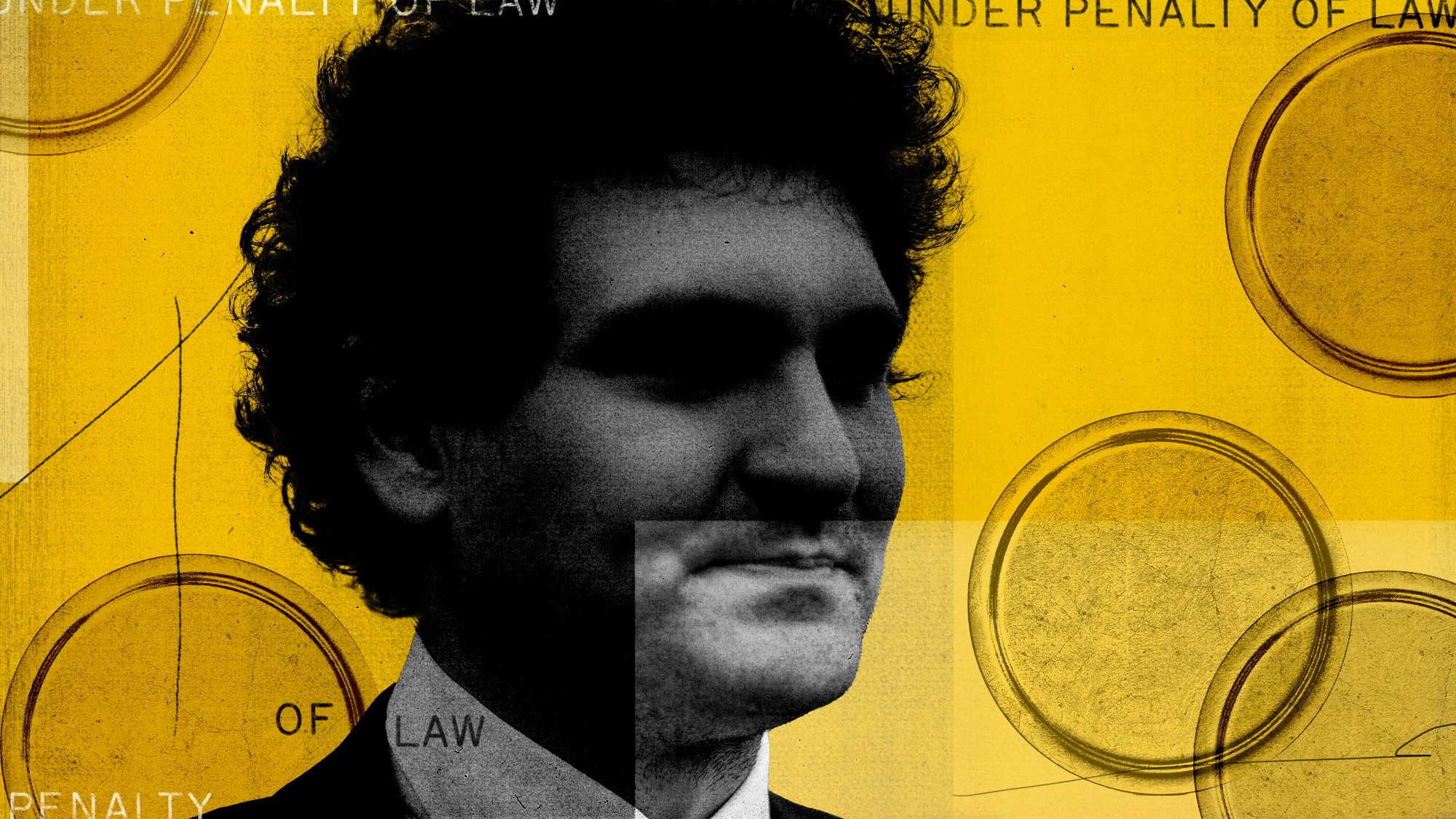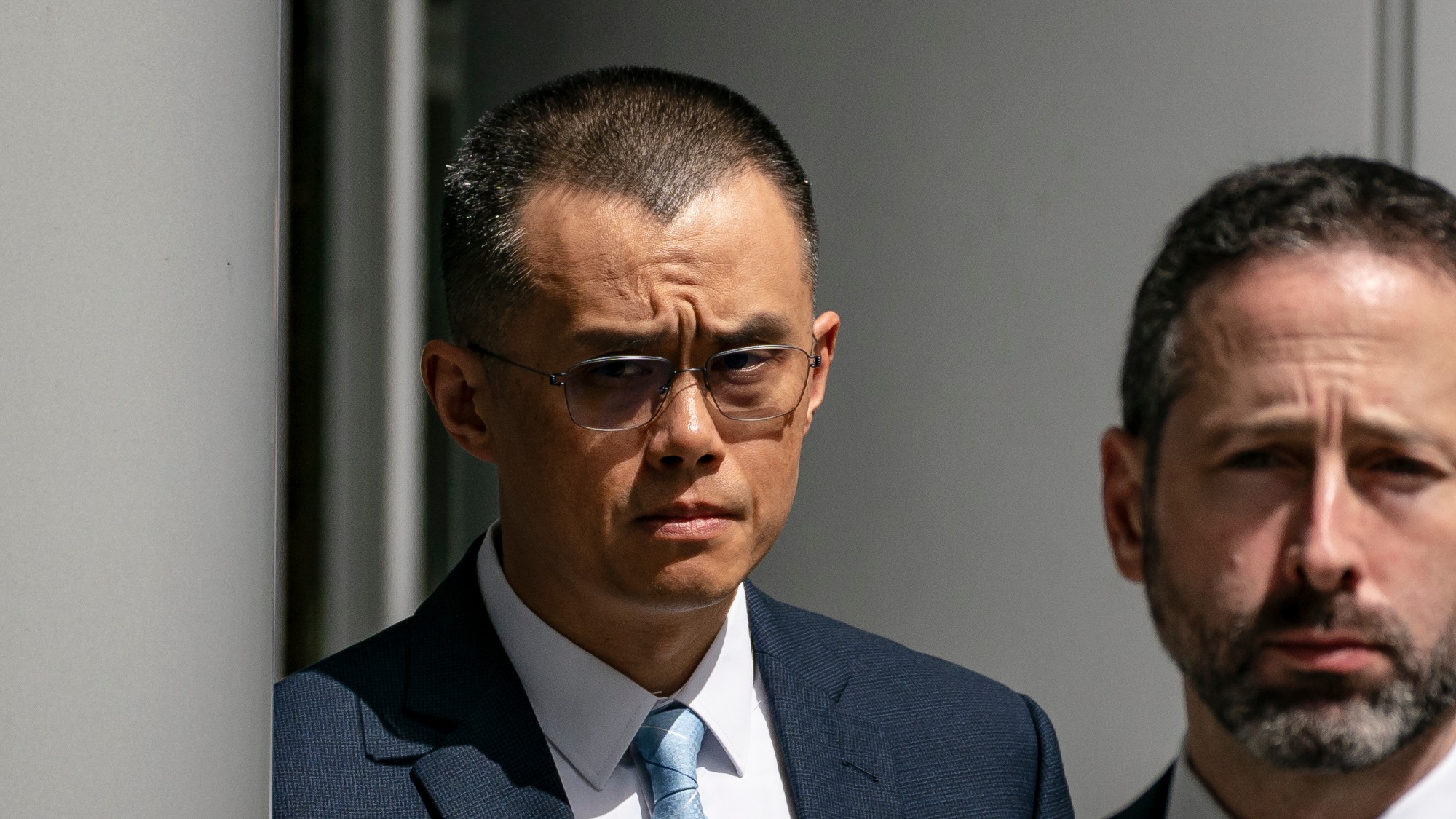Sam Bankman-Fried found guilty: where does crypto go from here?
Conviction of the 'tousle-haired mogul' confirms sector's 'Wild West' and 'rogue' image, say experts

A free daily email with the biggest news stories of the day – and the best features from TheWeek.com
You are now subscribed
Your newsletter sign-up was successful
Sam Bankman-Fried, who ran one of the world's biggest cryptocurrency exchanges, faces decades in prison after he was found guilty of fraud and money laundering.
The trial in New York of the 31-year-old "tousle-haired mogul", who founded the FTX cryptocurrency exchange, "laid bare the hubris and risk-taking across the crypto industry", said The New York Times.
The verdict "capped what prosecutors called one of the biggest financial frauds in American history", said Politico. But commentators are at odds over exactly what it means for the future of the crypto industry.
The Week
Escape your echo chamber. Get the facts behind the news, plus analysis from multiple perspectives.

Sign up for The Week's Free Newsletters
From our morning news briefing to a weekly Good News Newsletter, get the best of The Week delivered directly to your inbox.
From our morning news briefing to a weekly Good News Newsletter, get the best of The Week delivered directly to your inbox.
What did the papers say?
For the "broader cryptocurrency business", the conviction "could provide a long-awaited chance to move forward", said Reuters.
For some in the sector, Bankman-Fried's conviction on seven counts of fraud and conspiracy "points to the end of an era of risky and wrongful practices", and "a more regulated future", said Bloomberg.
But others outside the industry are "taking a much tougher line", arguing that the verdict "confirms crypto as a sector riven with weaknesses that attract criminals, hackers and rogue states".
Bankman-Fried, who was arrested last year after his firm, FTX, went bankrupt, has "done irrevocable damage to this industry", said Sky News, "reinforcing the narrative of a Wild West where consumers have no protection". So it will "take years for the crypto world to rehabilitate its image, if it ever does at all", added the broadcaster.
A free daily email with the biggest news stories of the day – and the best features from TheWeek.com
Jordan Estes, a former prosecutor, told Wired that the US Department of Justice will consider the conviction a "signature victory" and its first high-profile crypto scalp. He was "crypto royalty", which "lends his conviction a symbolic importance".
But "despite widespread predictions of cryptocurrency's demise", there is "still a market for virtual assets", said Reuters, noting that the price of bitcoin has more than doubled this year as "large financial institutions" like BlackRock "seek to make the virtual currency more respectable".
What next?
Further legal headaches are expected for crypto. After Bankman-Fried "met his fate" with the justice system, "much of the rest of the industry is facing its own legal showdowns with the [US] government", said Politico.
"Crypto giants" like Binance, Coinbase and Gemini are "still heading for courtroom clashes" with regulators that could "prove an even greater peril to the market's future" than FTX’s collapse in 2022.
Closer to home, the UK government unveiled plans earlier this week to regulate the crypto industry in a similar way to traditional financial investments that would require all crypto companies to be authorised by the Financial Conduct Authority (FCA).
But this plan has already come under attack by a former head of the regulator, noted the Financial Times. Charles Randell, who quit as chair of the FCA last year, warned that "investors risked being harmed if crypto assets were labelled as regular investments".
We can expect some within the sector to try to position themselves as non-crypto projects, said The New York Times. Several crypto companies have "tried rebranding", it said. Autograph, an NFT start-up co-founded by former American football star Tom Brady, "quietly removed some of the crypto language from its marketing", and Paradigm Capital "erased mentions of the word 'crypto' from its website", instead describing itself as a “research-driven technology investment firm".
Meanwhile, the broader tech industry has "done what it does best: move on to the next thing", it added. Silicon Valley is "no longer fixated on crypto" and although crypto firms "may come back around in a few years", for now "they are out of style and therefore irrelevant".
As for Bankman-Fried, it is unclear whether he will appeal against the verdict. He had pleaded not guilty to all the charges, insisting that he had acted in good faith. His sentencing has been set for 28 March next year.
Chas Newkey-Burden has been part of The Week Digital team for more than a decade and a journalist for 25 years, starting out on the irreverent football weekly 90 Minutes, before moving to lifestyle magazines Loaded and Attitude. He was a columnist for The Big Issue and landed a world exclusive with David Beckham that became the weekly magazine’s bestselling issue. He now writes regularly for The Guardian, The Telegraph, The Independent, Metro, FourFourTwo and the i new site. He is also the author of a number of non-fiction books.
-
 The Olympic timekeepers keeping the Games on track
The Olympic timekeepers keeping the Games on trackUnder the Radar Swiss watchmaking giant Omega has been at the finish line of every Olympic Games for nearly 100 years
-
 Will increasing tensions with Iran boil over into war?
Will increasing tensions with Iran boil over into war?Today’s Big Question President Donald Trump has recently been threatening the country
-
 Corruption: The spy sheikh and the president
Corruption: The spy sheikh and the presidentFeature Trump is at the center of another scandal
-
 Are Big Tech firms the new tobacco companies?
Are Big Tech firms the new tobacco companies?Today’s Big Question A trial will determine whether Meta and YouTube designed addictive products
-
 Silicon Valley: Worker activism makes a comeback
Silicon Valley: Worker activism makes a comebackFeature The ICE shootings in Minneapolis horrified big tech workers
-
 Can Europe regain its digital sovereignty?
Can Europe regain its digital sovereignty?Today’s Big Question EU is trying to reduce reliance on US Big Tech and cloud computing in face of hostile Donald Trump, but lack of comparable alternatives remains a worry
-
 Is Apple’s Tim Cook about to retire?
Is Apple’s Tim Cook about to retire?Today's Big Question A departure could come early next year
-
 Why Trump pardoned crypto criminal Changpeng Zhao
Why Trump pardoned crypto criminal Changpeng ZhaoIn the Spotlight Binance founder’s tactical pardon shows recklessness is rewarded by the Trump White House
-
 Is AI to blame for recent job cuts?
Is AI to blame for recent job cuts?Today’s Big Question Numerous companies have called out AI for being the reason for the culling
-
 Supersized: The no-limit AI data center build-out
Supersized: The no-limit AI data center build-outFeature Tech firms are investing billions to build massive AI data centers across the U.S.
-
 How will Ford reinvent EV manufacturing to compete with China?
How will Ford reinvent EV manufacturing to compete with China?Today's Big Question Henry Ford's assembly line system is being replaced